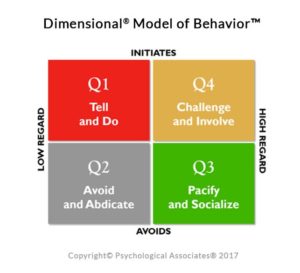
How to Speak Up About Ethical Issues at Work
When Your Coworker Leaves Early
What do you do when your coworker wants you to do something you feel is not right? In this instance, it is misusing company time–which is one of the 5 most common ethical work issues. But it could be any number of things. How to speak up about ethical issues at work? Should you acquiesce and join her? Tell her you are not going to partake in this, that it is wrong. Or something else? We’ll explore 3 alternatives to prepare you well should you ever face a similar ethical dilemma.
The Situation
Your company has decided to send you and a colleague, Jan, to an industry conference in Boston. You work out a schedule so that between the two of you, you can cover the workshops and seminars that would be most relevant to your company.
The night before the last day of the conference, Jan floats the idea that since the weather’s nice, you could both skip the last session and take a sightseeing tour of the harbor. She even has a friend who’s attending the session you’ll miss and can fill you in later.
Jan says the session topic isn’t that great anyway. She doesn’t want to take the tour by herself, so she’s asking you to join her.
Ethical Problem Solving
You thought the conference session sounded relevant, and anyway, you don’t feel right about skipping. It seems that this would be compromising your values. But how to speak up about ethical issues at work? You work with Jan and want to get along with her.
Your Choices:
No, please try again.
How to Speak Up re Ethical Issues at Work
A Note About This Situation
Understand that we are not discussing the ethics of skipping a work-related function the company has sent you to attend. We could have used scenarios, for instance, in which a co-worker asks you to fudge some research data for a report or wants you to knock off early on a Friday afternoon because the boss is out of town.
The question here is whatever it is that you don’t feel right about, how should you use Q4 behavior to approach your colleague so that 1) you don’t turn Q2 (passive, going along) or Q3 (trying to buddy up) and go against your personal ethics, and 2) you don’t damage your relationship?
Tell Coworker She is Doing Something Wrong and You Cannot Participate
You can approach Jan on a moral basis, showing offense that she wants you to skip out. But wagging a finger of disapproval–choice A–could come off as pompous or trying to shame her. If that’s your intent, fine, but understand that you might be burning a bridge in terms of working together well.Alternative B is a more constructive way to speak up about ethical issues at work.
Ask Your Coworker for Help
Choice B involves a First-Person Statement. Without pointing a finger of criticism, you put the spotlight on yourself, asking for Jan’s help to resolve this dilemma. “Jan, I’ve been thinking, and I need your help on this. On the one hand, I don’t want to disappoint you. I like our relationship at work. But I just wouldn’t feel right skipping this session. Can you help me work this out?”More than likely, she will not continue trying to get you to go along, and she shouldn’t feel that you are looking down at her.
NOTE: If she still wants to skip out on her own and you are concerned for her, you could try a consequence statement. “Jan, I think there are definite risks to doing this. Have you really thought it through?” She may scoff at that, but at least you tried.
Follow Your Coworker and Have Fun
Choice C is just rationalizing behavior you don’t actually want to take part in. If your strongest impulse is that you shouldn’t go along, it doesn’t matter how much you minimize its impact. Later, you could well be disappointed in yourself for turning Q2 or Q3. Plus, there’s a chance you will resent Jan for having put you in this position.No, please try again.
Next Up For You After Ethics
Now that you are one of the world’s leading authorities on how to speak up about ethical issues at work, we have several recommended next steps. Our Learning for Leadership page is chock full of educational leadership resources–additional people leadership tips, white papers, Do You Work with a Difficult Person behavioral questionnaire, and more.
Learning how to be an effective people leader is step one. If you are ready for the next step, being a Q4 leader, then check out our leadership development resources. We can support your development as a leader through workshops, coaching, 360 feedback, team skills, and more.
Finally, we invite you to subscribe to our newsletter, where you’ll find upcoming events and new leadership information monthly.











